REgional Activities Latin America
23.02.2024 Paraguay's SMEs Embrace Ethics and Integrity with 'Integrity Seal' Incentives Programme
Asunción, ParaguayRead more01.11.2023 Latin America’s compliance community joins forces to increase business integrity
Lima (Peru)Read more02.10.2023 Train of Trainers workshops on human rights held in Colombia and Mexico
Colombia, MexicoRead more11.04.2023 Alliance for Integrity is repositioning itself for the future in Chile
Santiago de Chile (Chile)Read more17.02.2023 Advisory Group in Peru held its first work session of the year 2023
Peru (online)Read more21.12.2022 Trilateral Cooperation strengthens Human Rights in Supply Chains
Bogota (Colombia) and Mexico City (Mexico)Read more08.03.2022 International Women’s Day 2022
Statement by the Alliance for Integrity Director Susanne FriedrichRead more17.02.2022 Trilateral Cooperation Project Germany-Brazil-Paraguay: "Strengthening integrity to overcome times of crisis"
Paraguay, Brazil, Germany; onlineRead more
Country Profile Brazil
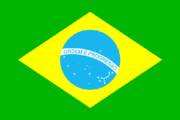
Brazil is the largest country of South America and has a population of over 207.7 million people. The country is categorised by the World Bank as an upper middle income country with an impressive GDP of 1,796,186.59 million US$, making it the 9th largest economy in the world, and making up nearly half of the Latin American economy.
Brazil ranked 105 out of 180 countries in the latest released Corruption Perception Index by Transparency International in 2018.
This marks a signififcant increase in perceived corruption in comparison to the previous year 2017 (rank 96/180), which highlights the challenge of corruption in the country. The results of the Global Corruption Barometer 2017 by Transparency International indicate that the majority (83%) of Brazilians surveyed agree that they feel empowered to fight against corruption, at the same time 78% of the respondents saw the level of corruption as increasing over the previous 12 months. Furthermore, over 74 % of the asked people said, that it is socially acceptable to report a case of corruption.
Brazil has ratified the OECD Anti-Bribery Convention, the United Nations Convention against Corruption (UNCAC), the Inter-American Convention against Corruption and the United Nations Convention against Transnational Organized Crime.
Moreover, Brazil is known for its strong legal framework aimed at preventing corruption, especially regarding the specific provisions contained in the Brazilian Penal Code. In addition, 2014 saw Brazil pass an anti-bribery law (Clean Company Act (12846/2013) that makes businesses liable for corruption committed against the public administration. Furthermore, in November of 2017 the Decree 9203 was published that requests Federal Bodies to implement compulsory compliance programmes.
Furthermore, the country’s government is one of the founders of the Open Government Partnership (OGP), which is a multilateral initiative that aims to secure concrete commitments from governments to promote transparency and fight corruption.
Instituto Ethos is the leading Corporate Social Responsibility organisation in the country, known for raising awareness on corruption and bribery for industrial federations in Brazil. Together with other organisations, Instituto Ethos launched the Business Pact for Integrity and Against Corruption, which has committed more than 500 companies to respect certain directives and procedures aimed at curbing corruption. The local chapter of Transparency International, Transparência Internacional, runs several anti-corruption projects and functions, operating in a similar manner to that of an advisory organ to federal and state governmental institutions.
Corruption scandals in Brazil in the past led to massive public demonstrations in the country that have gained extensive media coverage and have now set the stage for the private sector to get involved and pay closer attention to matters of corporate transparency and integrity.
REGIONAL ACTIVITIES in Brazil
17.02.2022 Trilateral Cooperation Project Germany-Brazil-Paraguay: "Strengthening integrity to overcome times of crisis"
Paraguay, Brazil, Germany; onlineRead more17.02.2022 Trilateral Cooperation Project Germany-Brazil-Paraguay: "Strengthening integrity to overcome times of crisis"
Paraguay, Brazil, Germany; onlineRead more08.06.2021 The Integrity Journey Continues – Success Stories of Previous Participants
São Paulo, BrazilRead more08.06.2021 Adapting the Integrity Journey to the Needs of the Brazilian Agricultural Sector
Brazil, onlineRead more08.06.2021 The Integrity Journey Continues – Success Stories of Previous Participants
São Paulo, BrazilRead more08.06.2021 Adapting the Integrity Journey to the Needs of the Brazilian Agricultural Sector
Brazil, onlineRead more23.10.2020 Advisory Group Brazil paves the way for a sustainable future of the initiative
Brazil, OnlineRead more10.12.2019 Awards ceremony of the ‘More Integrity Seal’ takes place in Brazil
Brasília, BrazilRead more10.12.2019 Awards ceremony of the ‘More Integrity Seal’ takes place in Brazil
Brasília, BrazilRead more19.09.2019 Advisory Group Brazil discusses Brazil' s contribution to the Vision 2025
Sao Paulo, BrazilRead more
at a Glance
| Population: | 212.559 million inhabitants | GDP per capita: | 6.796 US$ (2020) |
| Form of government: | Presidential federative republic | TI CPI rank: | 105/180 (2020) |
| GDP: | 1.445 billion US$ (2020) | Score: | 38/100 (2020) |
THE alliance for integrity in brazil
The Alliance for Integrity has been active in Brazil since 2014. The Alliance for Integrity office in Brazil is located in São Paulo, a city with over 12 million inhabitants, often considered a melting pot and the financial capital of the nation.
In May 2016 the joint Advisory Group of the Alliance for Integrity and Transparency International was established. It comprises representatives of the following organisations:
- Private sector: Natura, Magazine Luiza, Cisco, SAP, Banco do Brasil, Latam e Unimed Belo Horizonte
- Public sector: Controladoria-Geral da União (CGU; Comptroller General of the Union)
- Civil society: Instituto Ethos e Instituto Compliance Rio – ICRio
- Academia: Instituto Presbiteriano Mackenzie
The compliance training DEPE was recognised as an effective measure to prevent corruption by Enccla. Enccla is the National Strategy Against Corruption and Money Laundering, and it is formed by more than 64 bodies from public sector from Brazil. In 2017, the Alliance for Integrity was invited by Enccla to take part as a guest to Action 06 – Primary prevention against corruption.
The Alliance for Integrity was invited by Ministry of Agriculture in Brazil to join the Management Committee of the Agro+Integrity seal.
Country Profile chile
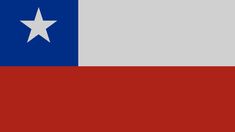
The Chilean economy has made considerable progress in correcting the macroeconomic imbalances accumulated in recent years. Domestic demand has continued to adjust and inflation has decreased, although it remains above the target. According to the World Bank, the gross domestic product (GDP) decreased by 1% in the first half of 2023, mainly due to the delayed effect of the fiscal and monetary contraction of 2022 after the extraordinary spending of 2021. The unemployment rate increased by 0.7 percentage points year-on-year in June 2023.
Poverty (less than USD 6.85 a day) contracted from 8.0% in 2020 to 4.8% in 2022. In 2022, income inequality, measured by the Gini coefficient, reached 0.43. However, deprivations in non-monetary dimensions, such as health and social security, increased compared to 2020. Real GDP is projected to decline by 0.4% in 2023 and return to a trend growth rate of 2% in the medium term. Poverty is estimated to increase by 0.4 percentage points, reaching 5.2% in 2023, while the Gini coefficient will remain at 0.43.
In the fight against corruption, Chile has taken significant measures, including the creation of institutions dedicated to preventing and combating corruption. These institutions work closely with the government, the private sector and civil society.
The Chilean regulatory framework also criminally sanctions acts of corruption and establishes administrative responsibilities for legal entities involved in corruption, money laundering and other similar crimes. Over the past two decades, Chile has established itself as a regional leader in transparency and anti-corruption, as it has committed to combating corruption through progressive laws, anti-cartel policies, and efforts to hold political leaders accountable. Chile has ratified several international conventions related to the fight against corruption, which demonstrates its commitment in this area.
Chile became the first South American country to join the Organization for Economic Cooperation and Development (OECD) in 2010. This accession marked a milestone in Chile's commitment to sound and transparent economic and social policies. The OECD recognized Chile for its efforts in promoting sustainable growth and fighting corruption, which strengthened the country's position in the international economic arena. Since then, Chile has continued to work in collaboration with the OECD to maintain and improve its standards and policies, contributing to the development and stability of the country.
In Chile, various activities related to integrity and the fight against corruption are carried out through cooperation between the government, international cooperation and civil society. Transparency and integrity are fundamental elements in efforts to improve governance and promote sustainable development.
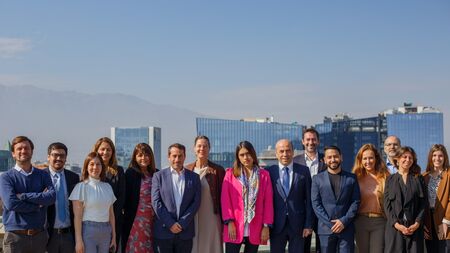
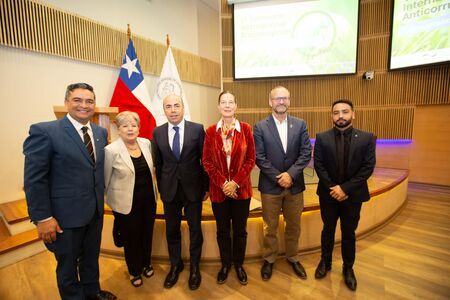
REGIONAL ACTIVITIES in CHILE
11.04.2023 Alliance for Integrity is repositioning itself for the future in Chile
Santiago de Chile (Chile)Read more28.09.2020 Strengthening Compliance Capacities in the Wine Sector
Buenos Aires, Argentina and Santiago, ChileRead more03.09.2019 Activities in Chile highlight the importance of the public-private cooperation in the fight against corruption
Concepción and Santiago de Chile, ChileRead more03.09.2019 Activities in Chile highlight the importance of the public-private cooperation in the fight against corruption
Concepción and Santiago de Chile, ChileRead more10.05.2018 Alliance for Integrity strengthens its presence in Chile
Santiago de Chile, ChileRead more10.05.2018 Alliance for Integrity strengthens its presence in Chile
Santiago de Chile, ChileRead more16.06.2017 The Integrity Week – For an even closer cooperation in the Latin American Region
Santiago de Chile, ChileRead more16.06.2017 The Integrity Week – For an even closer cooperation in the Latin American Region
Santiago de Chile, ChileRead more26.05.2017 The Alliance for Integrity kicks off its activities in Chile in 2017
Santiago de Chile, ChileRead more26.05.2017 The Alliance for Integrity kicks off its activities in Chile in 2017
Santiago de Chile, ChileRead more
At a glance
| Population: | 19.961 million inhabitants | GDP per capita: | 15.355 (US$ 2022) |
Form of government: | Presidential Republic | TI CPI Rank: | 27 /180 (2022) |
GDP: | 301.02 billion US$ (2022) | Score in the TI CPI Rank: | 67 /100 (2022) |
the ALLIANCE FOR INTEGRITY IN chile
The Alliance for Integrity has been active in Chile since 2016. Activities are carried out through the Alliance fro Integrity National Hub in Chile, represented by the Chilean-German Chamber of Commerce and Industry (AHK Chile). Access the official page of the National Hub of Chile: Integridad y Compliance - Hub Nacional de Alliance for Integrity en Chile.
The Chilean Network is also represented in the Regional Working Groups of the Alliance for Intregrity by the partners, DEPE trainers and compliance officers from a wide range of companies.
In April 2023, the Advisory Group of the Alliance for Integrity in Chile was formed, which is made up of representatives of the following organizations:
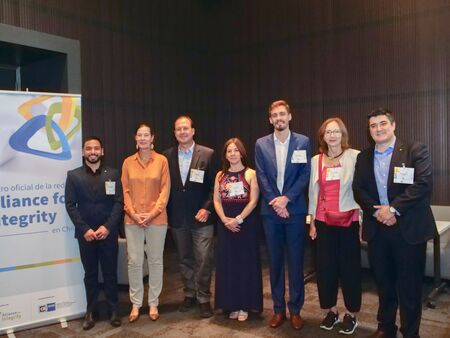
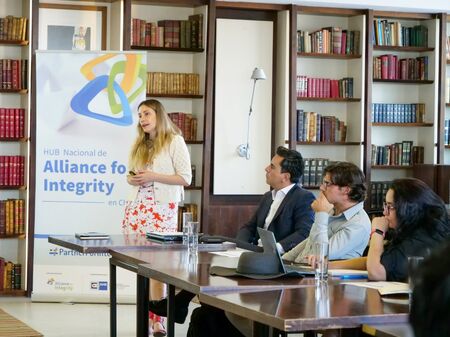
COUNTRY PROFILE ECUADOR
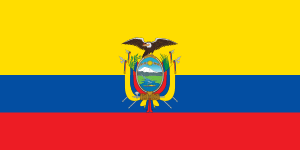
Ecuador is the most biodiverse country per square kilometer in Latin America. Crossed by the equatorial line and by the Andes Mountains, Ecuador has four regions: the Amazon rainforest, the highlands, the Pacific Coast and the famous Galapagos Islands, recognised for having inspired Charles Darwin's theory of evolution.
The Ecuadorian economy has presented continuous growth since its dollarisation in 2000. Until 2014, it was one of the countries with the highest increase in public investment, poverty and inequality reduction in the region. It is one of the main producers and exporters of bananas, shrimp, flowers and cocoa in the world. Ecuador has large reserves of non-renewable natural resources and has been characterised by an export model based largely on the export of raw materials and oil.
Currently, the drop in oil prices, the national public debt and the COVID-19 pandemic have negatively affected the Ecuadorian economy. However, its impact has been lower respect to other Latin American economies. It has received the largest amounts of financing and investment from both bilateral and multilateral partners, as well as from international credit organisations during the pandemic.
Ecuador has been devoted to strengthen its confidence within international financial markets, and to foster an economic reactivation.
Since 2018, Ecuador has held a series of negotiations to expand its trade agreements: it has existing agreements with the European Union, with the United Kingdom and at the end of 2020, signed a first phase trade agreement with the United States. It is member of the OECD Development Center and is currently working to become a member State of the Pacific Alliance, integrated by Chile, Colombia, Mexico and Peru.
Corruption is a complex, multi-causal and structural phenomenon with high levels of perception in the country. Ecuador has therefore promulgated a series of regulations, norms and anti-corruption policies. The country has ratified the United Nations Convention Against Corruption (UNCAC) and the Inter-American Convention Against Corruption (IACAC) . At the request of the Ecuadorian State and after the signing of a cooperation agreement between the Republic of Ecuador and the Federal Republic of Germany, the German Technical Cooperation GIZ has begun the implementation of the Bilateral Program Ecuador SinCero that promotes the prevention of corruption, transparency and citizen participation.
REGIONAL ACTIVITIES in ECUADOR
AT A GLANCE
Population: | 17.643 million inhabitants (2020) | GDP per capita: | 5.600 US$ (2020) |
Form of government: | Presidential Republic | TI CPI rank: | 92/180 (2020) |
GDP: | 98.808 million US$ (2020) | CPI score: | 39/100 (2020) |
THE ALLIANCE FOR INTEGRITY IN ECUADOR
The Alliance for Integrity officialy started its activities in Ecuador in November 2020, thanks to the support and collaboration with the bilateral GIZ programme Ecuador SinCero-Prevention of Corruption, Transparency and Citizen Participation. The work of the Alliance for Integrity in Ecuador is implemented very closely with its counterpart, the National Federation of Chambers of Industries of Ecuador (FEDIN), and other relevant partners that integrate the network at the national and subnational level.
Ecuador is also represented in the Alliance for Integrity Regional Working Groups by partners and DEPE trainers, compliance officers of a wide range of relevant companies within the country, most of them with regional or global presence.
In November 2020, the Advisory Group of the Alliance for Integrity in Ecuador was established. It comprises representatives of the following organisations:
- Private sector: National Federation of Chambers of Industries of Ecuador (FEDIN), Ecuadorian Business Committe (Comité Empresarial Ecuatoriano), Chamber of Industries and Production (CIP), ProCredit Bank Ecuador (representing also AHK Ecuador), SERTECPET S.A.
- Civil society: Ecuadorian Consortium for Corporate Social Responsibility (CERES Ecuador), Global Compact Ecuador, Esquel Foundation
- Academia: Ecuadorian Center of Excellence in Anti-Corruption (CEEA)
- Public Sector: three members from public sector organisations will soon be incorporated to the Advisory Group
Country profile Mexico
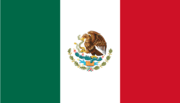
As Latin America’s second largest economy and the most important export nation in the region, Mexico plays a key economic and political role in Latin America and the Caribbean. Mexico is highly attractive to foreign investors with 33,930 million USD foreign direct investment in 2016.
However, corruption is still a significant risk for companies operating in Mexico. The costs of conducting business in Mexico is higher than in other countries in the region and the lack of transparency in the judicial system limits market competitiveness. The country’s judiciary and police, and business registration processes are often negatively influenced by corruption. Organized crime continues to be a very problematic factor for business, imposing large costs on companies. Compliance with procurement regulations is erratic, and corruption is extensive, despite laws covering conflicts of interest, competitive bidding, and company blacklisting procedures.
Despite a strong legal framework – corruption indeed is criminalised under the Penal Code, The Federal Public Servants’ Responsibilities Law, the Anti-Money Laundering Law, the Law on Acquisitions and the Law on Public Work and Related Services - Mexico’s anti-corruption legislation is not effectively enforced. Nonetheless, the country has shown interest in fighting corruption, particularly in the field of public procurement, monitoring processes, and in the health sector.
To reduce opportunities for corruption, the Mexican government introduced the Secretariat of the Economy website that offers information and forms related to investment and trade. An online federal procurement website, Compranet, is intended to increase transparency in the government and to decrease the frequency of bribery and a specialized public procurement due diligence tool for companies was built up to mitigate corruption risks associated with procurement in Mexico. In 2016, the enactment of the Constitutional Reforms regarding anti-corruption, gave birth to the country’s National Anticorruption System (SNA) which represents a historic step in the country´s fight against corruption. The SNA is a coordinating body between the federal and local authorities, which is in charge of the prevention, detection and sanction of administrative responsibilities and acts of corruption, as well as the control of pub-lic resources, in which citizens participate through a committee. Mexico has adopted the Transparency Standards on Government Procurement by the Asia-Pacific Economic Cooperation (APEC). Mexico has ratified the United Nations Convention against Corruption (UNCAC) and is a signatory to the OECD Anti-Bribery Convention.
The government established Tramitanet (in Spanish) to allow for the electronic processing of transactions within the bureaucracy and to thereby reduce the risk of bribery. Organisations like Iniciativa Latinoamericana por los Datos Abiertos, Banco Interamericano de Desarrollo, the United Nations Economic Commission for Latin America and the Caribbean (CEPAL), as well as the G20 together with the Organisation for Economic Co-operation and Development (OECD) are committed in the fight against corruption. There exist also a variety of initiatives from the civil society, e.g. 'Torre de Control', the citizen’s tool 'ContratoBook', the mobile application 'Escudo Ciudadano' and 'Mexicanos contra la Corrupción e Impunidad' (MCCI).
REGIONAL ACTIVITIES in MEXICO
02.10.2023 Train of Trainers workshops on human rights held in Colombia and Mexico
Colombia, MexicoRead more21.12.2022 Trilateral Cooperation strengthens Human Rights in Supply Chains
Bogota (Colombia) and Mexico City (Mexico)Read more12.03.2020 Corruption prevention experts share their knowledge in the Bajío region
León, Guanajuato, MexicoRead more12.03.2020 Corruption prevention experts share their knowledge in the Bajío region
León, Guanajuato, MexicoRead more19.02.2020 Digital instruments and technology in the fight against corruption
Mexico City, MexicoRead more19.02.2020 Digital instruments and technology in the fight against corruption
Mexico City, MexicoRead more23.10.2019 Alliance for Integrity launches its "Integrity Coffee" for female entrepreneurs in Mexico City
Mexico City, MexicoRead more23.10.2019 Alliance for Integrity launches its "Integrity Coffee" in Mexico City
Mexico City, MexicoRead more
aT a Glance
Population: | 128 million inhabitants | GDP per capita: | 8.346 US$ (2020) |
Form of government: | Presidential republic | TI CPI rank: | 124/180 (2020) |
GDP: | 1.076 billion US$ (2020) | Score: | 31/100 (2020) |
THE Alliance for Integrity in Mexico
The Alliance for Integrity has developed activities in Mexico together with implementation partners, since April 2016. As of September 2017, it has a regional hub in Mexico City, which has consolidated the work done.
There is a Working Group of the trainers of the DEPE corruption prevention training programme, and an ad-hoc Working Group was also created to adapt the ¡No eXcuses! guide to the local context.
In December 2018 the Advisory Group of the Alliance for Integrity was established. It comprises representatives of the following organisations:
- Private sector: Grupo Bimbo, Confederación Patronal de la República Mexicana (COPARMEX), Consejo Coordinador Empresarial (CCE),
Covestro, Siemens Mexico, Grupo Toks, Vesta Inmobiliaria - Civil society: Centro de Responsabilidad Social para el Desarrollo Sostenible Persé (Fechac), Comité de Participación Ciudadana del Sistema Nacional Anticorrupción (CPC), Mexicanos Contra la Corrupción y la Impunidad (MCCI)
- International Organisations: United Nations Office on Drugs and Crime (UNODC)
- Academia: Universidad Anáhuac México
Country Profile Paraguay
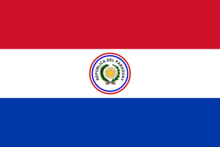
The poverty rate, which reached 19 per cent returned to pre-pandemic levels, but extreme poverty increased from 4.1 per cent (2021) to 5.2 per cent 2022) due to drought, high inflation (9.8 per cent and the reduction of economic assistance to the most vulnerable related to the pandemic. For the period 2024-2025, a decline of the average inflation rate is expected, depending on world fuel and food prices.
Despite macroeconomic stability, Paraguay faces challenges. The World Bank's Human Capital Project points out that, prior to the pandemic, a child born in 2020 would reach only 53 per cent of their potential productivity with full access to health and education, below the average for the Latin American region. Furthermore, its high vulnerability to climate change requires structural changes to increase productivity and resilience, highlighting the importance of strengthening governance, enforcing regulations, investing in human capital and infrastructure, and generating domestic revenues fairly and efficiently.
In the Corruption Perception Index for 2023, Paraguay has obtained 28 points, ranking on position 137 out of 180 countries. This result reflects a very high perception of corruption among its inhabitants.
In the last five years, citizen perception of corruption in the public sector has worsened, accompanied by a decline in the international ranking. Collaboration between government, international cooperation and civil society in activities related to integrity and the fight against corruption remains essential to improve governance and promote sustainable development in Paraguay.
REGIONAL ACTIVITIES in PARAGUAY
23.02.2024 Paraguay's SMEs Embrace Ethics and Integrity with 'Integrity Seal' Incentives Programme
Asunción, ParaguayRead more08.08.2022 "The Integrity Seal" in Paraguay: Building a culture of business ethics and transparency together
Asunción, ParaguayRead more17.02.2022 Trilateral Cooperation Project Germany-Brazil-Paraguay: "Strengthening integrity to overcome times of crisis"
Paraguay, Brazil, Germany; onlineRead more17.02.2022 Trilateral Cooperation Project Germany-Brazil-Paraguay: "Strengthening integrity to overcome times of crisis"
Paraguay, Brazil, Germany; onlineRead more26.10.2018 Alliance for Integrity conducts week of activities in Paraguay
Asuncion, ParaguayRead more26.10.2018 Alliance for Integrity conducts week of activities in Paraguay
Asuncion, ParaguayRead more
At a glance
| Population: | 7.466.030 million inhabitants | GDP per capita: | 7.162 USD (2023) |
Form of government: | Representative, participatory and pluralist democracy | TI CPI Rank: | 136/180 (2023) |
GDP: | 44.142 millon USD (2023) | Score in the TI CPI Rank: | 28/100 (2023) |
ALLIANCE FOR INTEGRITY in Paraguay
Alliance for Integrity has been active in Paraguay since 2016. As a National Network, it has a team of more than 40 trainers, experts in ethics, integrity and compliance; reaching more than 225 SMEs trained in corruption prevention by 2023.
Starting in 2023, Alliance for Integrity has the Paraguayan Compliance Association – APAC as its National Hub, and is in the process of forming the Advisory Group with member institutions from the public and private sectors, civil society and Academia.
Country Profile Peru

Peru is one of the largest economies in Latin America and enjoys great macroeconomic stability. The country has faced big challenges in recent years, such as the effects of the pandemic and political and social uncertainty, but it has managed to recover the growth of its economy. Peru's gross domestic product (GDP) grew by 2.7% in 2022, supported by the dynamic of private consumption and exports. According to World Bank estimates, in 2023, GDP is projected to grow by 2.4%, driven by the primary sectors and services.
Overall, the World Bank notes that Peru's macroeconomic fundamentals remain strong. It is pointed out that public debt as a percentage of GDP is low, international reserves are considerable and the Central Bank in charge of monetary policy enjoys great trust. At the same time, the Peruvian economy faces important structural challenges such as reducing informality in the labour market, which provides low-productivity employment for three quarters of workers. Another is to improve the quality of government services, such as education, supply of health and water, as well as combat corruption. Overcoming these challenges is essential to boost long-term growth and poverty reduction in the country.
Peru has taken various measures to combat corruption in recent years, such as the creation of the High-Level Anti-Corruption Commission (CAN), a space for communication and coordination between public, private and civil society institutions. Its objective is to propose short, medium, and long-term policies aimed at preventing and combating corruption in the country.
Peru has a solid regulatory framework to prevent corruption. In 2018, it approved a law that penalizes acts of corruption committed between private parties that affect the development of business relations and fair competition between companies and a law that regulates the administrative responsibility of legal persons for corruption, the crime of bribery, money laundering, terrorist financing, influence peddling and collusion. In that same year, the Secretariat of Public Integrity of the Presidency of the Council of Ministers was created, the body responsible for technically overseeing the National Integrity and Anti-Corruption policy.
In addition, Peru has ratified important international conventions such as the United Nations Convention against Corruption, the Inter-American Convention against Corruption, the Palermo Convention against Organized Transnational Crime, the International Convention for the Suppression of the Financing of Terrorism, the Convention Inter-American Court on Mutual Assistance in Criminal Matters, among others. The ratification of these conventions is a sample of the efforts that the country has been developing in the fight against corruption and transnational organized crime.
In terms of open government, Peru has been a pioneer in the region, passing the Law on Transparency and Access to Information in 2002 and joining the Open Government Partnership in 2012, with five open government plans already approved. These advances demonstrate Peru's commitment to continue promoting open government at the service of citizens, and it is expected that new initiatives will be implemented in the future.
Peru adopted in 2023 the Roadmap for access to the Organization for Economic Cooperation and Development (OECD), after several years of progress in substantial reforms to promote sustainable development. Said Roadmap includes an obligation to strengthen integrity and to fight against corruption.
In Peru, the activities of the Alliance for Integrity are implemented through an agreement with the project "Building Governance with Integrity" led by the Presidency of the Council of Ministers with the support of the German Federal Ministry for Economic Cooperation and Development (BMZ), implemented by Deutsche Gesellschaft für Internationale Zusammenarbeit GIZ GmbH, which has the objective to strengthen the management of administrative reforms by decision makers at the central level, ensuring comprehensive government action based on evidence. The "Building Governance with Integrity" project provides technical assistance to the Presidency of the Council of Ministers, the Comptroller General of the Republic, among other partners, and establishes cooperative relationships with the private sector, academia, and civil society.
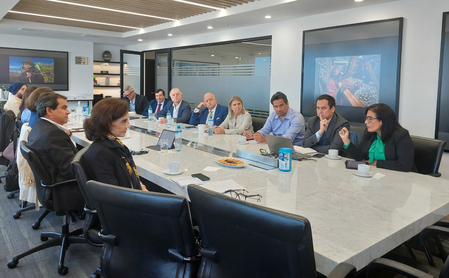
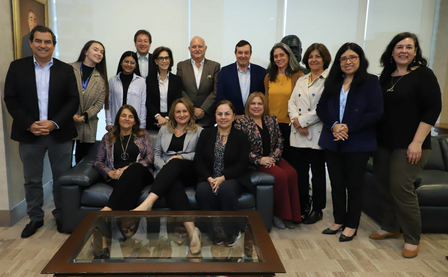
REGIONAL ACTIVITIES in Peru
01.11.2023 Latin America’s compliance community joins forces to increase business integrity
Lima (Peru)Read more17.02.2023 Advisory Group in Peru held its first work session of the year 2023
Peru (online)Read more10.12.2021 Alliance for Integrity’s First Year in Peru: Strengthening Business Integrity Together
Peru, onlineRead more10.12.2021 Alliance for Integrity’s First Year in Peru: Strengthening Business Integrity Together
Peru, onlineRead more
At a glance
| Population: | 33.7 million inhabitants | GDP per capita: | 7331 (US$ 2022) |
Form of government: | Presidential republic | IT CPI rank: | 101 /180 (2022) |
GDP: | 24.478.000 US$ (2022) | IT CPI Score: | 36 /100 (2022) |
ALLIANCE FOR INTEGRITY in PERu
Alliance for Integrity officially began its activities in Peru in 2022 thanks to the alliance with the project "Building Governance with Integrity", whose counterpart is the Presidency of the Council of Ministers and is executed by German development cooperation, implemented by the GIZ.
Peru is also represented in the Alliance for Integrity Regional Working Groups by partners, DEPE trainers and compliance officers from a wide range of companies.
In December 2022, the Advisory Council of the Alliance for Integrity in Peru was formed, which is made up of representatives of the following organizations:
- Private sector: German Peruvian Chamber of Commerce AHK Peru, Lima Chamber of Commerce, CONFIEP, Ferreycorp company , Talma company, Danper company, Bermac company and SNC Lavalin company.
- Civil Society: Entrepreneurs for Integrity and Proética (Peruvian Chapter of Transparency International),
- Academia: Consortium for Economic and Social Research - CIES and the Universidad del Pacífico.
Regional Profile LATIN AMERICa
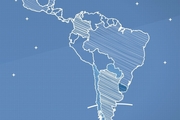
International studies to measure corruption place Latin America at high levels of perceived corruption. For instance, the Transparency International Corruption Perception Index 2018 shows that from the countries where the Alliance for Integrity is present, only Uruguay and Chile have a score above 67 from 100, where 100 means very clean and 0 highly corrupt. Except from Argentina the rest of the countries (Brazil, Colombia, Mexico, Paraguay) do not even achieve 40 points.
This shows that corruption in Latin America remains a big challenge. The levels of corruption and the mechanisms in place to tackle it vary from country to country.
Nevertheless, recent corruption scandals in the region and the subsequent increasing public awareness and mobilisation that this has provoked, has led to greater attention being placed upon this issue from governments and private sector actors across the region. In a few countries, this has already resulted in legislative changes and the creation of controlling bodies.
Besides Brazil and Mexico, the Alliance for Integrity is present in five countries in the region:
Argentina

Argentina is the second largest economy in South America after Brazil. The country is experiencing a recent change of government and is undergoing significant changes in respect to tackling corruption. In 2015 a new director has been appointed to the Anti-Corruption Office (Oficina Anticorrupción), who has stated her commitment to submit to Congress a new legal bill to address the issue of stolen assets.
at a Glance
| Population: | 43.8 million inhabitants | GDP per capita: | 12,440 US$ (2016) |
| Form of government: | Presidential democracy | TI CPI rank: | 85/180 (2018) |
| GDP: | 545,4 billion US$ (2016) | Score: | 40/100 (2018) |
Chile
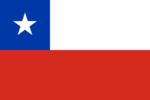
Chile is one of the least corrupt countries in Latin America. In order to achieve this status, the country has taken exemplary steps to deal with corruption, such as by developing a strong and well enforced body of legislation and by building strong and transparent institutions that both promote business and have effective mechanisms to investigate and punish corrupt practices. Chile’s economy is prospering and by large parts is based on the mining sector.
at a Glance
| Population: | 17,909 million inhabitants | GDP per capita: | 8,123 US$ (2016) |
| Form of government: | Presidential democracy | TI CPI rank: | 27/180 (2018) |
| GDP: | 247,027 billion US$ (2016) | Score: | 67/100 (2018) |
Colombia
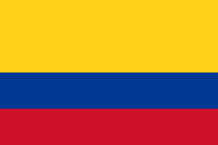
Colombia, with an economy that has experienced rapid and sustained growth over the past years, has established a public agenda on anti-corruption through the 2014 legislation on Transparency and the Right to Access National Public Information. This will facilitate the development of tools and mechanisms that will promote higher levels of transparency and therefore minimise corruption risks.
at a Glance
| Population: | 48,653 million inhabitants | GDP per capita: | 5,805.6 US$ (2016) |
| Form of government: | Presidential democracy | TI CPI rank: | 99/180 (2018) |
| GDP: | 282,462 billion US$ (2016) | Score: | 36/100 (2018) |
Paraguay
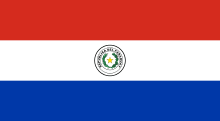
Paraguay is placed among the countries with the highest level of perceived corruption in Latin America, according to the Corruption Perception Index by Transparency International. This shows the great challenge that this country faces and thus, the greater need for the Alliance for Integrity to foment higher levels of transparency. Although the country does have strict laws relating to matters of compliance and prevention of corruption, such as the law to prevent and suppress unlawful acts intended to legitimise money or property, significantly greater enforcement is needed if it is to result in noticeable change.
at a Glance
| Population: | 6,725 million inhabitants | GDP per capita: | 4,077.7 US$ (2016) |
| Form of government: | Presidential republic | TI CPI rank: | 132/180 (2018) |
| GDP: | 27,424 billion US$ (2016) | Score: | 29/100 (2018) |
Uruguay
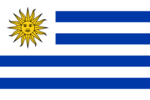
Uruguay achieved the highest score in the region on Transparency International's Corruption Perception Index. Nevertheless, it is far from being free of corruption and its government advocates further improvement. In this context, they continue to strive for higher levels of transparency and continue to invest resources in effective control and monitoring mechanisms.
at a Glance
| Population: | 3,444 million inhabitants | GDP per capita: | 15,220 US$ (2016) |
| Form of government: | Presidential democracy | TI CPI rank: | 23/180 (2018) |
| GDP: | 52,419 billion US$ (2016) | Score: | 70 (2018) |
ALLIANCE FOR INTEGRITY IN LATIN AMERICA
The Alliance for Integrity has been active since 2015 in Latin America with its capacity building programme "De Empresas para Empresas". In Latin-America we have offices in Brazil and Mexico. In the rest of Latin America the work of the Alliance for Integrity is implemented by cooperation with various local partners.
The Regional Working Group Latin America consists of different partners and stakeholders from the whole Latin American continent. In regular meetings, they exchange their expertise and foster efforts of implementing compliance measures on a regional level.
Since 2017, the Alliance for Integrity has been offering training session to State-Owned Enterprises (SOEs). Since 2018, representatives from SOEs from Argentina, Brazil, Colombia, and Mexico have been exchanging experiences on the topic in the Regional Working Group of State-Owned Enterprises. At their meetings, the working group discusses best practices and is currently developing a compendium on tools for integrity programmes within SOEs.
Trainers
With our Train-the-Trainer programme we have already been able to qualify a considerable number of trainers.
Working Group
The Regional Working Group Latin America brings together compliance professionals from the region.





